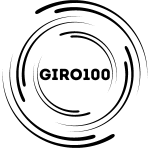Maintaining good digestive health is essential for overall well-being. Many individuals seek natural methods to enhance their digestive functions without relying on medication. Implementing simple lifestyle changes can significantly improve digestion and reduce discomfort.
From dietary modifications to incorporating certain habits, there are effective and natural ways to support digestive health. Readers will discover practical tips that can seamlessly fit into their daily routines. These strategies not only promote better digestion but also contribute to increased energy and vitality.
Exploring these natural techniques empowers individuals to take charge of their health. Understanding how to improve digestion naturally opens the door to feeling better and thriving in everyday life.
Understand the Digestive Process
The digestive process is essential for breaking down food to extract nutrients and energy. Key components include enzymes that facilitate chemical reactions and the role of gut flora in maintaining a healthy digestive environment.
The Role of Enzymes
Enzymes are proteins that accelerate biochemical reactions in the digestive system. They are crucial for breaking down carbohydrates, proteins, and fats into smaller molecules.
In the mouth, salivary amylase begins carbohydrate digestion. The stomach then uses pepsin to break down proteins. In the small intestine, enzymes from the pancreas and brush border enzymes further digest nutrients.
Proper enzyme function can be influenced by diet, hydration, and overall health. A lack of specific enzymes can lead to digestive disorders like lactose intolerance, where the body struggles to digest lactose due to insufficient lactase enzyme.
Importance of Gut Flora
Gut flora, or gut microbiota, consists of trillions of microorganisms living in the digestive tract. They play a significant role in digestion, nutrient absorption, and immune system function.
These microorganisms help break down complex carbohydrates and produce short-chain fatty acids, which are vital for gut health. A balanced gut flora can also protect against harmful bacteria and aid in the synthesis of certain vitamins.
Diet rich in fiber, probiotics, and prebiotics supports positive gut flora balance. Factors like antibiotics, poor diet, and stress can negatively impact gut flora composition, potentially leading to digestive issues. Maintaining gut health is essential for optimal digestion.
Optimize Your Meal Times
Establishing optimized meal times can significantly enhance digestion. A structured approach to eating can lead to improved nutrient absorption and overall digestive health.
Regular Eating Schedule
Adhering to a consistent eating schedule helps the body regulate its digestive processes. Eating meals at the same times each day can train the digestive system to function more efficiently.
Incorporating three main meals and two healthy snacks is beneficial. For instance:
- Breakfast: 7:00 AM
- Morning Snack: 10:00 AM
- Lunch: 1:00 PM
- Afternoon Snack: 4:00 PM
- Dinner: 7:00 PM
This structure promotes better digestion by allowing the body to prepare for food intake. Regular meal times can also prevent overeating and unnecessary snacking that might disrupt digestion.
Mindful Eating Practices
Practicing mindful eating enhances digestion by encouraging individuals to focus on the meal rather than distractions. Paying attention to each bite can lead to better food choices and improved portion control.
Key techniques include:
- Slow Down: Take smaller bites and chew thoroughly.
- Eliminate Distractions: Avoid televisions and smartphones during meals.
- Listen to the Body: Recognize hunger and fullness cues.
Mindful eating not only improves digestion but also enhances the overall eating experience. This approach fosters a deeper appreciation for food, promoting healthier dietary habits over time.
Select Nutrient-Dense Foods
Choosing nutrient-dense foods plays a crucial role in improving digestion naturally. Such foods are high in essential vitamins and minerals, which support digestive health and overall well-being. The following subsections outline specific food choices and dietary practices beneficial for digestion.
Whole Food Choices
Incorporating whole foods into the diet can significantly enhance digestive health. Whole foods are minimally processed and retain their natural nutrients. This category includes fruits, vegetables, whole grains, lean proteins, and healthy fats.
For fruits, opt for berries, apples, and pears, which are rich in vitamins and antioxidants. Vegetables like spinach, broccoli, and carrots provide essential fiber. Whole grains such as brown rice, quinoa, and oats supply vital nutrients while improving gut health. Including lean proteins like chicken, fish, and legumes can also aid digestion by offering essential amino acids.
Fiber-Rich Diet
A fiber-rich diet is essential for optimal digestion. Fiber promotes regular bowel movements and helps prevent constipation. It is key to incorporating both soluble and insoluble fiber for balanced gut health.
Soluble fiber can be found in foods like oats, beans, and fruits such as oranges and bananas. These foods help to absorb water and form a gel-like consistency in the gut, which aids digestion. Insoluble fiber, found in whole grains, nuts, and vegetables, adds bulk to stools and facilitates their passage through the digestive tract.
To improve fiber intake, individuals should gradually introduce high-fiber foods and drink ample water to support the digestive process.
Hydration and Digestion
Proper hydration is vital for digestion as it aids in breaking down food and absorbing nutrients effectively. Water helps facilitate the movement of food through the digestive system, preventing issues like bloating and constipation.
It’s best for individuals to drink water throughout the day rather than consuming large amounts at once. Keeping a water bottle handy can promote regular intake. Herbal teas and broths can also contribute to daily hydration and offer additional digestive benefits.
Generally, adults should aim for at least 8 cups (64 ounces) of water daily, adjusting based on factors like activity level and climate.
Lifestyle Adjustments
Making specific lifestyle adjustments can significantly enhance digestion. These changes emphasize the importance of regular physical activity and effective stress management.
Physical Activity Benefits
Incorporating regular physical activity into daily routines supports the digestive process. Exercise stimulates intestinal contractions, which can help move food through the digestive tract more efficiently.
Types of Beneficial Activities:
- Walking: A simple 30-minute walk can encourage digestion and reduce bloating.
- Yoga: Certain poses can aid in alleviating gastrointestinal discomfort and promote relaxation.
Engaging in physical activity at least 150 minutes per week, as recommended by health experts, can also help maintain a healthy weight. A balanced exercise regimen improves overall well-being, which may indirectly benefit digestive health.
Stress Management Techniques
Effective stress management is essential for optimal digestion. Chronic stress can disrupt the gut’s function, leading to issues like bloating, constipation, and diarrhea.
Best Practices for Reducing Stress:
- Mindfulness Meditation: Practicing mindfulness helps center the mind and reduce anxiety, positively impacting digestive health.
- Deep Breathing Exercises: These techniques stimulate the vagus nerve, promoting relaxation and potentially enhancing digestive efficiency.
Living a stress-reduced life can improve the gut-brain connection, leading to better digestion. Consistently implementing these techniques may yield noticeable benefits in digestive comfort and regularity.
Natural Remedies and Supplements
Natural remedies and supplements can play a significant role in improving digestion. They provide tools for enhancing gut health and addressing common digestive issues.
Probiotics and Prebiotics
Probiotics are live bacteria that support gut health. They can be found in foods like yogurt, kefir, sauerkraut, and kombucha. Additionally, they are available in supplement form. Regular consumption of probiotics helps maintain a balanced gut flora, which can improve digestion and reduce bloating.
Prebiotics serve as food for probiotics and can enhance their effectiveness. Common sources of prebiotics include bananas, onions, garlic, and asparagus. Including these foods in the diet can support the growth of beneficial gut bacteria. A balanced intake of both probiotics and prebiotics may lead to smoother digestion and overall gut health.
Herbal Supplements
Herbal supplements can offer natural support for digestive health. Popular options include ginger, which may alleviate nausea and promote gut motility, and peppermint, known for soothing gastrointestinal discomfort.
Another well-known herbal remedy is fennel, which can help reduce gas and bloating. Turmeric contains curcumin, offering potential anti-inflammatory benefits that could aid digestion.
When considering herbal supplements, it is essential to consult a healthcare professional. This ensures they complement individual health needs and do not interact adversely with other medications.

I’m Caroline Dhavernas, passionate about gut health and overall well-being. Through my journey, I’ve explored the profound connection between nutrition and digestive health, sharing insights to help others achieve balance and vitality. Let’s embark on a path to a healthier gut together!

